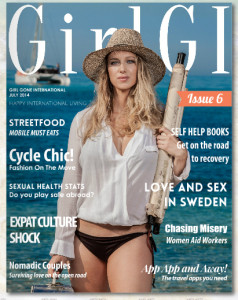Chasing Misery: An Interview about Humanitarian Aid Work with Kelsey Hoppe
 Kelsey Hoppe works for the Pakistan Humanitarian Forum (PHF), a membership organization of international NGOs providing humanitarian aid in Pakistan, where she lives. Previously, she worked in a range of different humanitarian and development roles in places like Sudan, South Sudan, Uganda, Indonesia, and Ukraine. Ms. Hoppe is also heading up a project to publish an anthology of essays written by women working in humanitarian responses – Chasing Misery – to be published in 2013.
Kelsey Hoppe works for the Pakistan Humanitarian Forum (PHF), a membership organization of international NGOs providing humanitarian aid in Pakistan, where she lives. Previously, she worked in a range of different humanitarian and development roles in places like Sudan, South Sudan, Uganda, Indonesia, and Ukraine. Ms. Hoppe is also heading up a project to publish an anthology of essays written by women working in humanitarian responses – Chasing Misery – to be published in 2013.
Missio spoke with Ms. Hoppe about the book project and her work in humanitarian aid.
To read the full interview please click here.



